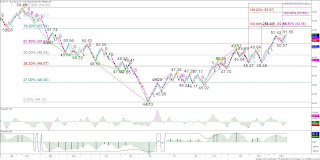If you were to pose the question what is ‘energy risk management’ to market pundits, don’t be surprised if the definition is as varied as the individuals articulating them. Many of these pundits have an academic approach to energy trading and hence they come up with theoretical suggestions that often contradict actual movements in the market. What is common though, is most of them see risk management as a function of ‘options’ and you would come across thousands of posts and blogs that talk about options.
This particular problem arises from the fact that many experts who have called it right in the equity markets where there is more liquidity and get into the role of issuing sermons for energy trading. Apart from few technical similarities it is similar to comparing apples and oranges. Many of their calls are made on theoretical study of the market rather than a scientifically backed analytical study where tons of data in analyzed and turned into meaningful information. Whether you want to protect margins, minimize your exposure to risk or secure your budget you need to listen to specialists who analyze data with statistical models.
Analytical & Meaningful Suggestions
When you opt for trading advisory from a reputable agency that has expertise in energy risk management they offer you treasure trove of information to make the right calls. Instead of boring paragraphs of text they would present to you color coded charts that are easy to read and make sense of. Whether you want to set up a risk management goal or strike balance between risks and rewards in highly volatile energy market these agencies offer tailored advisories and strategies based on your current exposure in the market, risk appetite and future goals.
As a business whose financials are directly linked to energy trading you need to work with such strategists. Their years of experience and in-depth working knowledge of the market with benefit you in multiple ways. From helping you choose the right trading instrument to customizing scale-in strategies for your needs they minimize the risk associated in energy trading. They help you shield your investments from recurring risks and also improve your odds of making sound financial decisions.
As we have mentioned it earlier, energy risk management goes much beyond options and you should keep your own ‘options’ open by working with experts.
This particular problem arises from the fact that many experts who have called it right in the equity markets where there is more liquidity and get into the role of issuing sermons for energy trading. Apart from few technical similarities it is similar to comparing apples and oranges. Many of their calls are made on theoretical study of the market rather than a scientifically backed analytical study where tons of data in analyzed and turned into meaningful information. Whether you want to protect margins, minimize your exposure to risk or secure your budget you need to listen to specialists who analyze data with statistical models.
Analytical & Meaningful Suggestions
When you opt for trading advisory from a reputable agency that has expertise in energy risk management they offer you treasure trove of information to make the right calls. Instead of boring paragraphs of text they would present to you color coded charts that are easy to read and make sense of. Whether you want to set up a risk management goal or strike balance between risks and rewards in highly volatile energy market these agencies offer tailored advisories and strategies based on your current exposure in the market, risk appetite and future goals.
As a business whose financials are directly linked to energy trading you need to work with such strategists. Their years of experience and in-depth working knowledge of the market with benefit you in multiple ways. From helping you choose the right trading instrument to customizing scale-in strategies for your needs they minimize the risk associated in energy trading. They help you shield your investments from recurring risks and also improve your odds of making sound financial decisions.
As we have mentioned it earlier, energy risk management goes much beyond options and you should keep your own ‘options’ open by working with experts.




